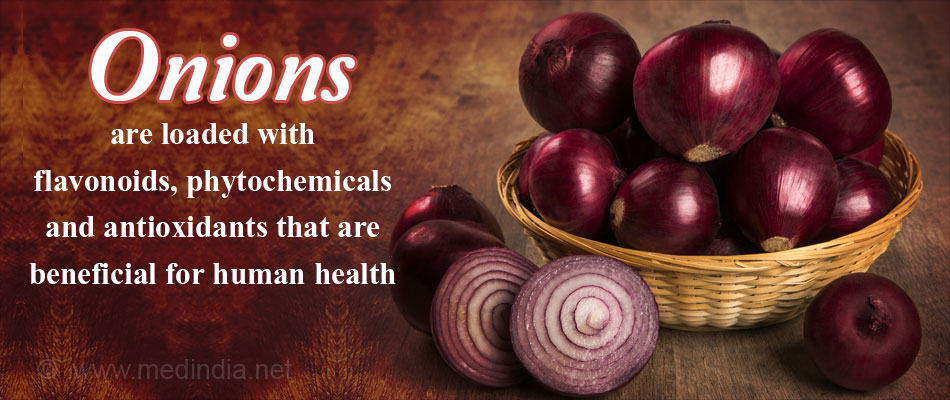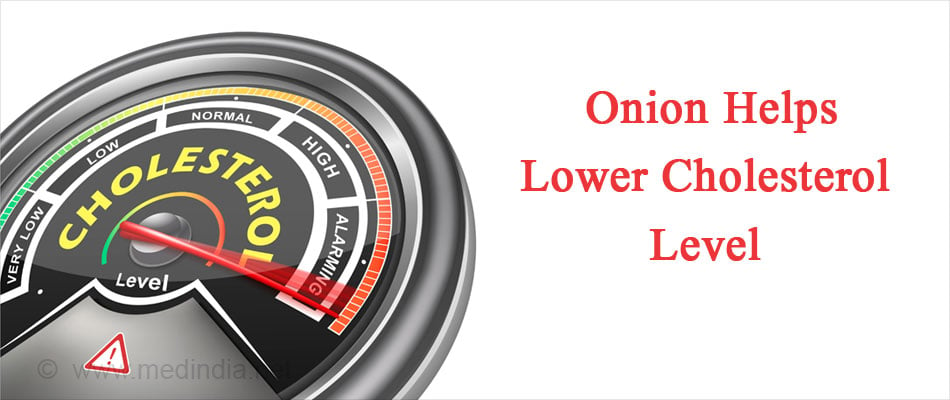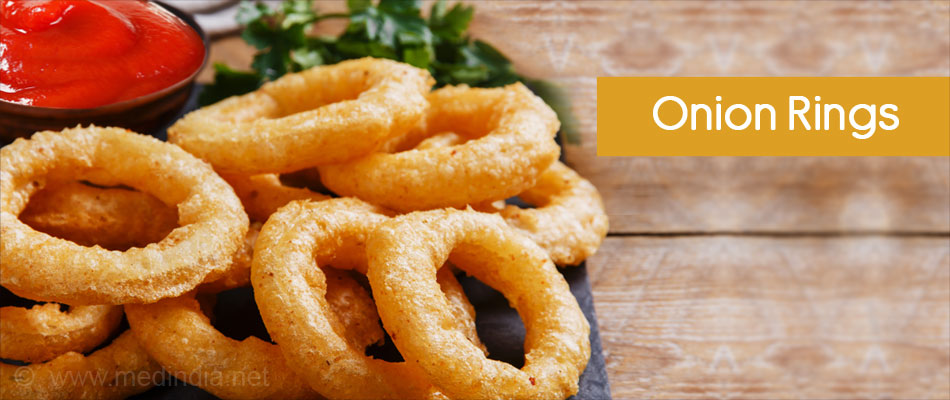- Anti-diabetic effects of Allium cepa (onions) aqueousextracts on alloxan-induced diabetic Rattus novergicus - (http://www.academicjournals.org/app/webroot/article/article1380531959_ozougwu.pdf)
- Potential therapeutic effect of Allium cepa L. and quercetin in a murine model of Blomia tropicalis induced asthma - (https://www.ncbi.nlm.nih.gov/pmc/articles/pmc4344790/)
- Polyphenols Isolated from Allium cepa L. Induces Apoptosis by Induction of p53 and Suppression of Bcl-2 through Inhibiting PI3K/Akt Signaling Pathway in AGS Human Cancer Cells - (https://www.ncbi.nlm.nih.gov/pmc/articles/pmc4189478/)
- Preliminary Study of the Clinical Hypoglycemic Effects of Allium cepa (Red Onion) in Type 1 and Type 2 Diabetic Patients - (https://www.ncbi.nlm.nih.gov/pmc/articles/pmc2978938/)
Introduction to Onion
Onion is a common household vegetable that is cultivated widely all throughout the world. It is broadly used in the food industry for its aromatic and nutritional properties. It is native to Southwest Asia and it belongs to the family "Liliaceae" (scientific name- Allium cepa). Onions are mainly found in temperate regions. They are a versatile ingredient that is often used in many dishes and it is generally accepted by almost all the different cultures and traditions. They are extensively used in the preparation of savory dishes.
Since hundreds of years onions have been used for various medicinal purposes such as lowering high blood pressure, blood glucose levels and cholesterol levels and as an anti-septic. These health benefits of onions are attributed to the presence of two active compounds - cysteine and allyl propyl disulfide (APDS).

Health Benefits of Onions
Onions have a wide range of beneficial effects on the body, especially when eaten raw. Onions are loaded with flavonoids, phytochemicals, antioxidants and many other healthy compounds that are beneficial for human health. Let's throw some light at the advantages of eating onions.
Lowers High Blood Glucose Levels
Onions contain active compounds that help in lowering high blood glucose levels. Onion consumption stimulates the release of insulin, improves overall insulin action and enhances the uptake of glucose by cells which is further used as a source of energy rather than increasing the blood glucose levels. A study published in 2010 showed that adding 100 grams of raw onion to the diet of individuals with type 2 diabetes mellitus reduced the fasting blood glucose levels by 40 mg/dl.
Reduces High Cholesterol Levels
Cysteine, a healthy compound present in onion possesses lipid lowering action. Consumption of onion is associated with lower cholesterol and triglyceride levels. It further reduces the activity of enzymes that lead to synthesis of fatty acids and triglycerides. Onions also help in lowering total cholesterol levels by increasing the excretion of bile acids from the body. Excess cholesterol from the body is excreted in bile acids, hence removal of bile acids is a good way to lower cholesterol levels. Furthermore, consumption of onion increases the breakdown of fat and helps in improving overall lipid profile.

Anti-Bacterial Activity
Onions contain phytochemicals (plant chemicals that promote good health) that inhibit the growth of bacteria. Studies have revealed that onion and onion juice kill the bacteria and further prevent its growth and spread. Bacteria that cause food-borne illnesses are sensitive to "Allicin", a compound present in onions. Flavonols, quercetin and kaempferol are some compounds present in onion that possess anti-microbial and anti-bacterial properties that fight against bacterial growth.
Protects Against Liver Damage
Free radicals attack the liver and cause liver injury. The antioxidants present in onions scavenge free radicals and improve liver health. APDS, a healthy compound present in onion binds the toxic substances present in the liver and increases its excretion. Thus, onions help in the detoxification process of the liver and further helps to maintain normal and healthy liver structure and function.
Anti-Epileptic Agent
Epilepsy is a brain disorder that damages the brain cells. The main cause for epileptic seizures is increased load of free radicals. Onion is a great source of antioxidants. These antioxidants scavenge the free radicals and thus prevent episodes of seizures. Selenium, a trace element helps in maintaining good health of the brain cells. Lack of selenium can lead to brain disorder such as epilepsy and may even lead to brain cell death. Onion is a good source of selenium that protects brain cells and prevents seizures and epilepsy.

Protects Against Gastric Ulcers
Consumption of onion protects the inner lining of the stomach and prevents onset of gastric ulcers.
Furthermore, it increases the production of mucus that coats the inner lining of the stomach and prevents the damage caused by gastric ulcers. The antioxidants present in onion help in maintaining an oxidative balance in the stomach tissue. Thus, it prevents the damage caused by free radicals. Thus, daily consumption of onion can confer protection against gastric ulcers.
Boosts Immunity
Onion plays a contributory role in enhancing overall immune function. Onion contains approximately 25 active healthy compounds and anti-microbial properties that make it a potent immune system booster. Furthermore, onions boost immunity by protecting the body against various infections such as viral, fungal, bacterial and parasitic. Studies have further unraveled that including onion in daily diet stimulates the immune system by reducing the symptoms associated with diabetes mellitus, asthma, stomach and brain cancer, heart diseases and osteoporosis. Therefore, these medicinal properties of onion stimulate the immune system and keep diseases and disorders at bay.
Anti-Asthmatic Agent
Onions contain "quercetin", a compound that exhibits anti-inflammatory and antioxidant properties. Because asthma is an inflammatory condition, the anti-inflammatory properties of onion can help in the management of asthma and its symptoms. Onion further possesses "bronchodilator properties", that is, it makes breathing easier by relaxing the muscles in the lungs and helps in widening the airways. It also reduces lung inflammation and symptoms associated with asthma.

Protects the Heart
Consumption of fresh onion prevents the formation of blood clots and blockage in the arteries. It further helps in the management of diabetes mellitus, high blood pressure and high cholesterol and triglyceride levels that are risk factors for heart disease. Furthermore, it inhibits clot formation and ensures smooth blood flow from the heart to other parts of the body.
Anti-Cancer Agent
Onion has been used as a supplementary folk remedy for the treatment of cancer. Onion contains plentiful flavonoids and sulfur-containing compounds that exhibit anti-cancer properties. These chemicals present in onion inhibit the growth of cancer cells and further prevent its spread to other parts of the body. It further reduces multiplication of cancer cells. The high antioxidant content of onion fights against free radicals and reduces the load of oxidative stress.
Nutrient Content of Onion
Onion is a low-caloric vegetable that contains 40 calories per 100 grams of serving. Thus, it can contribute good flavor and taste to dishes without increasing the overall caloric content. Onions contain various vitamins and minerals in small amounts such as vitamin C, vitamin B6, folic acid, calcium, magnesium, potassium, manganese, selenium and sodium. The low-sodium content of onion makes its consumption suitable for individuals with high blood pressure. The glycemic index of onion is low, thus diabetics can safely consume it. One cup of onion contains approximately 3 grams of dietary fiber. Besides this, onion contains plant chemicals such as flavonoids, quercetin, sulfur compounds, tannins and polyphenols. Flavonoids are concentrated in the outer flesh of the onion. Therefore, over-peeling it may lead to the loss of flavonoids. Furthermore, over-cooking and cooking on high flame can lead to loss of these plant chemicals. Thus, it is better to cook onion on a slow flame in order to preserve the plant chemicals.
Tips for Preparing, Cooking and Storing Onion
Storage:
The first step to healthy eating is purchasing healthy and clean food items. It is very important to buy onions that are dry (not moist), well shaped and clean. Onions with soft spots, black patches and signs of mold should be avoided. They should be stored at a clean and dry place away from direct heat of the sun or light. Onions should be kept in a ventilated space and do not store them in the refrigerator.
Cooking:
Minced or diced onions should always be cooked on slow heat. Cooking them on high heat can lead to loss of certain nutrients and healthy compounds.
Step 1: Use a heavy bottom or thick bottom pan to cook onions. Add some oil to the pan. When you start cooking onions, after a few minutes they lose their crispness, become soft and turn translucent. You need to stir them occasionally so that the onions do not burn and are cooked evenly.
Step 2: During this step the onions turn golden brown in color and they begin to have a slight caramel-like aroma.
Step 3: If you continue to cook the onions they will turn deep brown in color. These are called caramelized onions where onions lose their pungency and taste sweet.
Besides this you can even bake, grill or fry onion rings.

Different Ways to Eat Onion
- The best way to enjoy onion is in raw form
- Onions can be mixed with other vegetables to make a healthy salad
- Onions are the base for many types of gravy preparation
They can be added to breads and pies
- You can even add some sautéed onion to soups
You can improve the taste of plain rice by cooking it with onions, chilies and some spices








